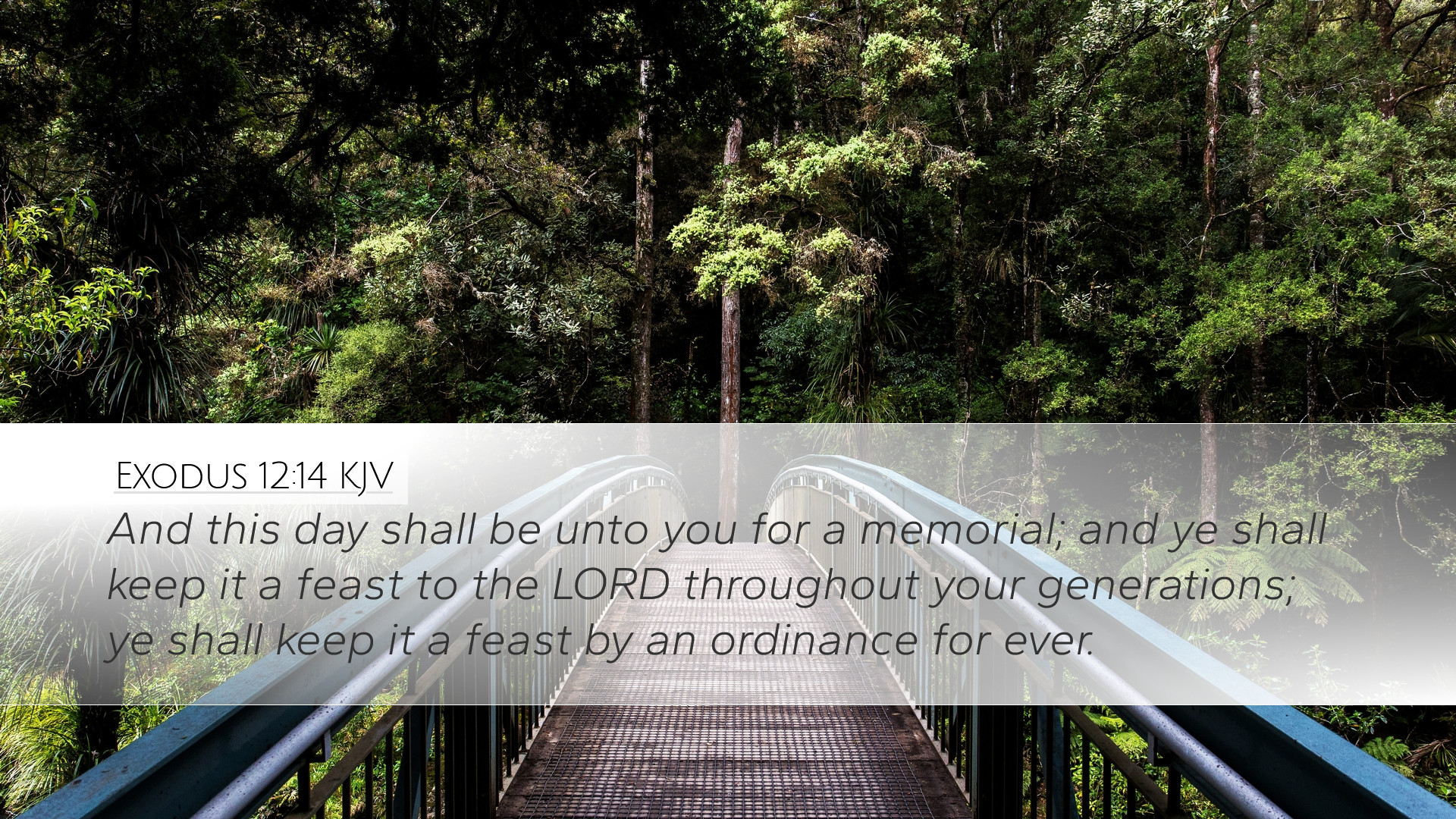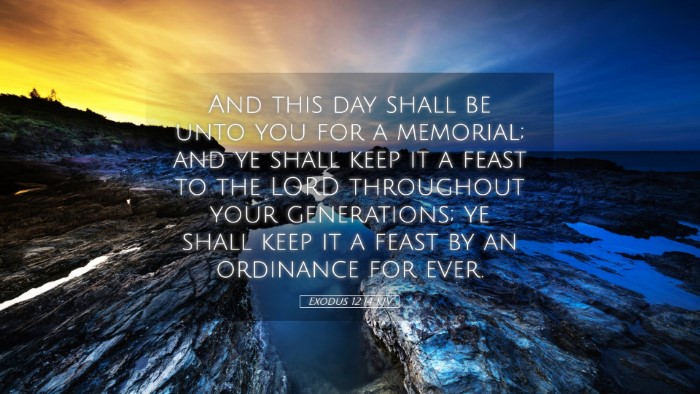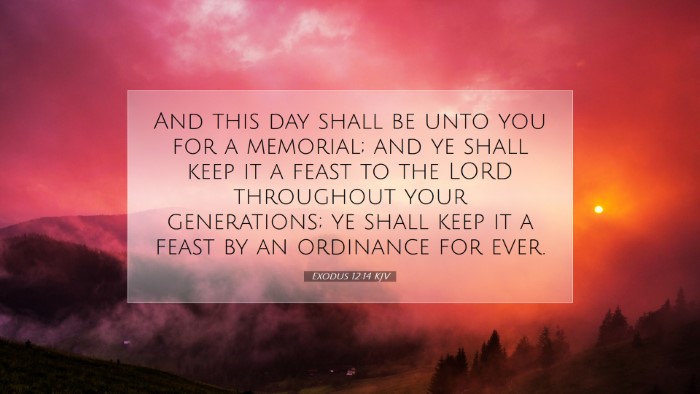Commentary on Exodus 12:14
Exodus 12:14 states: "And this day shall be unto you for a memorial; and ye shall keep it a feast to the Lord throughout your generations; ye shall keep it a feast by an ordinance for ever." This verse is pivotal in understanding the establishment of the Passover and its significance in the Israelite tradition. Below, we will explore insights from esteemed public domain commentaries by Matthew Henry, Albert Barnes, and Adam Clarke, analyzing the verse's profound implications for faith and tradition.
Significance of the Memorial
Matthew Henry's Commentary emphasizes that the day commemorated by this verse serves as a perpetual reminder of the Lord's deliverance of Israel from slavery in Egypt. Henry notes that God desires His people to remember this event as it displays His power and mercy. The memorial nature of this day is vital for both recognition of past deliverance and the reinforcement of faith in future promises from God.
Albert Barnes enhances this understanding by highlighting the importance of memorials in the faith journey. He states that memorials are not just reminders but also acts of worship that draw believers into the divine narrative of salvation history. The observance of Passover, therefore, is a continuous acknowledgment of God's saving acts, ensuring that future generations remain cognizant of their heritage and the faithfulness of God.
Observance of the Feast
Adam Clarke provides an in-depth explanation of the Passover feast's instituted nature. He explains that this feast is not merely a cultural event; it is ordained by God as a sacred observance that requires adherence throughout generations. Clarke remarks that the ongoing observance aids in instilling a sense of communal identity that binds each generation to the covenant community.
Covenantal Implications
The command to keep the feast "throughout your generations" points to the covenantal relationship between God and Israel. Matthew Henry discusses how this is a key aspect of God’s relationship with His people. The perpetual nature of the feast symbolizes the enduring commitment that God has towards His people. It serves as a reminder that God's promises transcend time and are to be recounted within the communal life of Israel.
Essential Observances and Practices
- Rituals of the Passover: According to Albert Barnes, the essentials of the observance involve specific rituals that reinforce the narratives of God's deliverance.
- Family and Community Unity: Adam Clarke discusses how the Passover fosters unity among families as they partake of the feast together, symbolizing their shared history and faith.
- Teaching Future Generations: The observance includes the imperative to instruct the younger generations, ensuring that the lessons of faith and divine intervention are passed down (Barnes).
Theological Reflections
This verse and its surrounding context provide a rich tapestry for theological reflection. Matthew Henry asserts that the themes of deliverance, empowerment, and faith encapsulated in the Passover reflect the ongoing redemptive narrative that fulfills in Christ. The New Testament parallel shows how Jesus becomes the ultimate Passover Lamb, making this feast not just a reflection of the past but a foretaste of the future.
Albert Barnes reiterates this by discussing the transformative nature of participation in such feasts. He proposes that every observance of the Passover in the present reflects back upon the original event, thus deepening the understanding of God's faithfulness across generations.
Concluding Thoughts
Exodus 12:14 not only commands the observance of the Passover as a memorial but invites a profound engagement with the history of God’s people. The insights provided by Matthew Henry, Albert Barnes, and Adam Clarke converge to emphasize that such commemorations are essential for understanding one’s identity before God. They cultivate faith, encourage communal bonds, and celebrate the continuity of God's redemptive work in the lives of His people.
In summary, this verse serves as an enduring reminder that God’s acts of deliverance are to be remembered and celebrated, sustained through the ages in the hearts and practices of believers.


